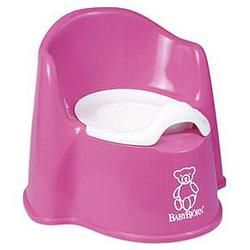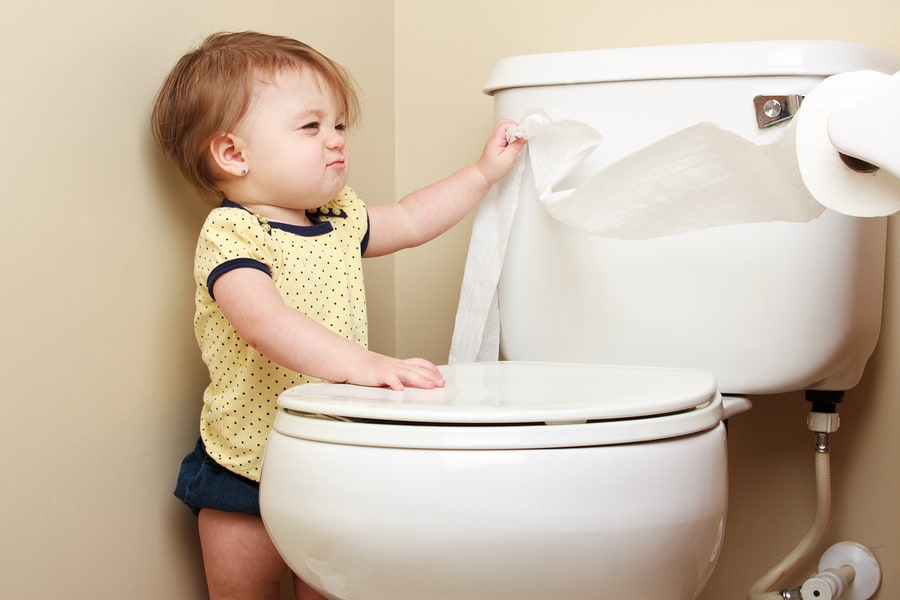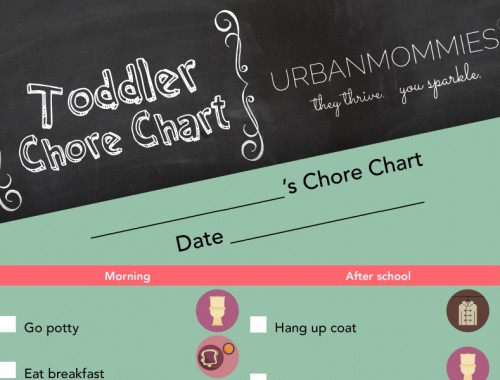 Are you ready to do the “Potty Training Dance”? Or, maybe the question is: is your toddler ready to do the “Potty Dance”? There is controversy on every step of potty training, from whether or not to use pull-ups to when your child is ready to start. Everyone has their own advice on how to potty train your child, however it is you, and essentially your child, who will make the decision on when, where and how the potty training process will happen.
Are you ready to do the “Potty Training Dance”? Or, maybe the question is: is your toddler ready to do the “Potty Dance”? There is controversy on every step of potty training, from whether or not to use pull-ups to when your child is ready to start. Everyone has their own advice on how to potty train your child, however it is you, and essentially your child, who will make the decision on when, where and how the potty training process will happen.
Signs that your Child is Ready to Ditch the Diapers
Ultimately, you want to keep your eye out for the signs that your child is ready to potty train. There are four categories of signs: Verbal/cognitive, physiological, motor skills, and emotional growth/social.
Verbal and cognitive readiness – Can your toddler follow verbal directions? Does she imitate other people’s behavior? Does she understand the words, “potty”, “toilet”, “bathroom” and other words that you choose to use for potty training? Can she answer whether she has to go potty or not?
Physiological readiness – Does your child have prolonged dry diapers? Does he “pee” quite a bit at one time, rather than a little many times throughout the day? Has he stopped “pooing” during the night? Does he know when he needs to go? (For example, does he sneak off to a certain spot, squat and hide when going potty in his diaper?) Is there a regularity to his “pooing” schedule?
Motor skills readiness – Can your toddler dress – and undress – herself? Can she pull her pants and underpants down by herself?
Emotional growth/social readiness – Does your little one have the desire to become a “big boy” or “big girl”? Does he exhibit the desire for your approval? Does he like to imitate you and other people?
The Age to start Considering the Transition
Research has revealed that most children have fully developed elimination muscles when they are between the ages of 12 and 24 months. Most experts agree that the average “readiness” age is at about 18 months of age, but, again, the signs that are outlined above will be a good basis in the direction of start with.
Do not fret and become disappointed if your little 18 month old demands that they still need their diaper while little Suzy down the road, at 19 months old, is fully potty trained. Every child develops differently. Putting the pressure on your child to potty train before they are ready will only be counteractive and possibly delay the process.
Tips and Tricks
Rewards – You will want to come up with your own reward system that will encourage your child. What does your toddler love? Do stickers encourage your child? Maybe you could purchase some small toys at the Dollar Store. Does she like M&M’s or Skittles? Think about things that are small, but significant to your child and come up with a reward system that he will enjoy.
Potty Seat – Purchase a potty seat or chair that you think will work best for your child. You may have to try a couple of different ones or take your toddler to the store with you to pick one out.
Naked Potty Training – Some children will be more prone to potty train when they are allowed to run around the house in their birthday suit. There will be no diaper when it’s time to go potty, and if they are physically aware of when they need to “go” and they’re ready for the big feat, they might just decide they have to go on the potty.
Target Practice – For boys, try the Cheerios or Fruit Loops in the potty target practice. Just tell them to point and shoot.
Pull-Ups – Pull-Ups are designed a bit different than diapers. They will “feel” wetter when your child pees, rather than the absorbing diapers. They are also easier to pull down than diapers, so your child can practice pulling their “underwear” down and up and still have protection if they have an accident.
Encouragement, Praise & Patience
Sometimes, nothing works better with toddlers than encouragement and praise. Stay away from discipline when potty training. Although potty training is a challenge, to say the least, and can get frustrating at times, discipline will only have adverse affects on the potty training process.
Stay patient – potty training will require love, support and patience. With this in mind, it won’t be long before you and your “big boy” or “big girl” get to do the “potty dance” together happily.



[…] a few days between washes, you will probably save several hundred dollars between the birth and toilet training of your little […]